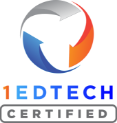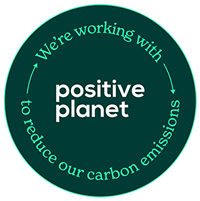Rola Ajjawi, Professor of Educational Research at the Centre for Research in Assessment, from Deakin University, Australia on the provocations panel discussion on the topic ‘Making Assessment Meaningful’. This recording is from our 2023 MiniBash community event which was hosted in Birmingham, England. Videos are for educational personnel only and require a live educational email to watch. You can read a small snippet of the video transcript below.
–START TRANSCRIPT–
Hi, everyone. This is a bit of a conceptual type of provocation, and what I’d like to talk with you about is how we can think differently about how we represent student achievement in our courses, and how we might introduce authenticity a bit more into the ways in which students represent their achievements and also themselves.
So what do you see here? It’s a transcript. What can you reconstitute about the student based on this? Very little, I imagine. Except that they have a degree from the University of Melbourne, and they’ve passed some subjects. And the problem we pose around this is that the way in which universities represent student achievements is not very good.
They’re often de-contextual. That doesn’t help us to really understand what a student can actually do out there in the world by having completed the course.
The other thing that we do really poorly is represent achievement across competencies and learning outcomes. If we spend so much time writing out these course learning outcomes, and then what they get devolved into is these modular learning outcomes. And then we add marks across these learning outcomes. So we don’t illuminate. In fact, we obscure how someone is tracking across communication, how someone is tracking across problem solving in their trajectory across a degree.
Now that doesn’t just obscure it to the outside world but potentially to the student themselves because we’re not helping them to get those cues and scaffolding them to make sense of their achievements across these competencies that we spend so much time mapping.
And it also doesn’t give us a sense of the students’ distinctiveness. And so when we speak to employers and we’ve been speaking to them recently around this work, they say, actually, we just checked, do they have a degree or not? That’s what it’s come down to. And it was only in law that they said, actually, we might look at the scores.
So I think we’re underselling what we can provide and the purpose of a degree to society at large but also to our students.
And so we wrote this paper. That’s David Boud and myself. And we argued that graduates need opportunities to portray their achievements that are richer and more authentic than conventional representations of marks and grades.
And really, that the challenge of portrayal of student achievement shouldn’t be just about the validated components I.e. the summative assessments and the marks that they get. But somehow for students to also be able to represent and portray their narratives of how they’ve gone across their degree. And so, we need both these validated and these rich ways of thinking about who our students are.
So, I never thought I’d give a talk with this for those of you who don’t know who this is, this is Kim Kardashian. In some other work we drew from celebrity studies, and this notion of persona. What a persona is is a strategic negotiated construction for a particular audience.
–END TRANSCRIPT–







